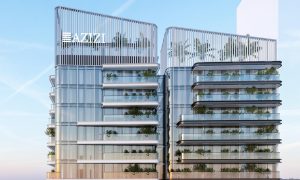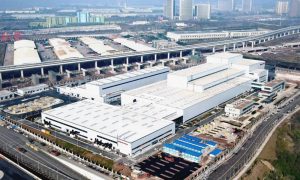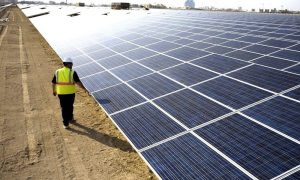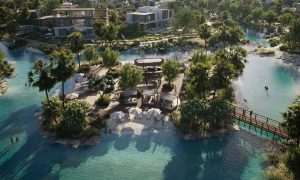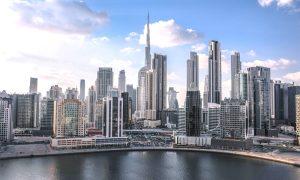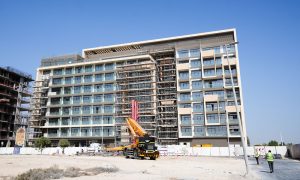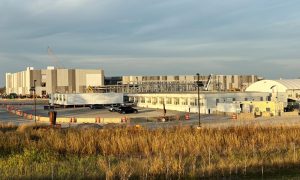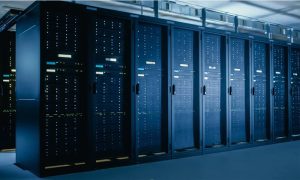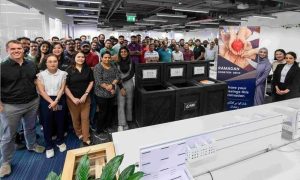Sustainability: How Dubai’s Majid Al Futtaim is leading the way
Retail developer explains why green building matters

Majid Al Futtaim, a retail and entertainment developer headquartered in Dubai, announced in October that it had been awarded a Green Star rating by the Global Real Estate Sustainability Benchmark (GRESB) for the second year in a row.
The developer was recognised for its work in implementing international best practices throughout its real estate portfolio. In 2015, the company increased its sustainability performance to 67%, up from 56% in 2013, while also outperforming the global average performance rate by 12%.
The developer also achieved a score of 100% from GRESB for the management of its sustainability practices and a 95% mark for the understanding of risks and opportunities to the Majid Al Futtaim business.
The GRESB survey measures the sustainability performance of real estate portfolios globally. For 2015, the survey compared 688 companies on a number of measures, including energy reduction performance, building certifications, stakeholder engagement, and quality of sustainability policies, new constructions and major renovations.
Coming during Dubai Chamber Sustainability Week 2015, the announcement also serves as an indicator of the major role the private sector can play to help Dubai achieve its stated goal of becoming one of the world’s most sustainable cities by 2020.
In order to fully understand how the developer is approaching and implementing sustainability, Big Project ME spoke to Ibrahim Al-Zu’bi, head of Sustainability at Majid Al Futtaim and a senior advisor for economy and sustainability at Dubai Land Department, Government of Dubai.
Speaking at an exclusive media briefing, Al-Zu’bi explains that his role is to oversee the sustainability strategy for the company, while also raising the company’s sustainability profile in the Middle East. He leads Dubai’s Sustainable Real Estate Initiative, and is a member of the board for the Emirates Green Building Council. He is also a member of the advisory board of Dubai Real Estate Institute.
However, his core focus remains turning Majid Al Futtaim into one of the most effective and profitable sustainable companies in the region, as he explains.
“When we first started talking about sustainability, we spoke to the staff [of Majid Al Futtaim] first. We needed to know how it can be embedded. We discovered that our staff is fully aware of the impact of a building [on the environment]. Everyone knows that buildings consume energy, consume water and that they produce a lot of waste.
“And when we spoke to the board and the senior management about why we should have sustainability, believe it or not, they all came up with five main reasons. The first point that came up was ‘We’re a business’, and I liked that. I don’t just want people to look at us as tree-huggers or that we’re green-washing or whatever.
“First of all, it’s about cost-saving, so it makes sense [to embrace sustainability]. You consume energy, you implement energy efficiency and savings, and you’ll save on your utility bills. And it’s good for the planet as well, as you’ve reduced your carbon impact. It just makes sense.”
The second point raised by the board was that when you have a green asset, it not only increases the value of the asset, but also helps long-term profitability. The third point raised is particularly pertinent in the modern world.
“We operate in countries where there’s a young population: Middle East and North Africa. Almost 60% of the population is under the age of 30, and you see young people – globally, not just here – making a difference and being more aware.
“Ethical consumerism is growing and best practices are growing. Governments and the private sector have started working together, especially in this part of the world, to make growth and development sustainable and better for existing generations, and generations to come.”
The fourth point raised was brand reputation. As a developer with a strong legacy in the market, Al-Zu’bi insists that Majid Al Futtaim continues to be a leader in the field, introducing new concepts and methodologies and putting sustainability at front and centre of the brand.
“Finally, the most important thing is corporate citizenship. We’re part of the community, we’re not separate. We look at our customers and employees as part of our corporate citizenship. But having said that, this region – the Middle East and North Africa – is something of a unique region. This can be challenging, but at the same time, good for opportunities.
“We live in a semi-arid region. We have water challenges, we have energy supply challenges and at the same time we have employment challenges, which don’t help the stability of the region. So when we introduced our sustainability policy, we took this into consideration – the economic and community development. It wasn’t only about environment, it was also about improving the communities we’re working in.”
To this end, Majid Al Futtaim has taken it upon itself to be a regional leader in sustainability and a reference point for the region’s developers.
“As much as we’d like to make the world a better place, we decided to start with our world,” Al-Zu’bi quips. “The first priority area was to pioneer standards [in the region] by creating internal policies for the business that we do. A great example of this is the Green Building Policy. Anything we build – by policy, by internal law within Majid Al Futtaim – must be green. Which means that it must be LEED Green-certified – either LEED Gold or BREEAM: Excellent or the equivalent.
“It means investing and supporting local green building standards, and being the first to implement them. We are board members of Emirates Green Building Council and we’re board members of the Lebanese Green Building Council. We would like to share our knowledge within all of the different green building platforms.”
As owners of the region’s first LEED Gold mall in Mirdiff City Centre, which is also the first LEED EBOM-certified mall, Majid Al Futtaim is certainly going about things the right way. Eight of its malls are LEED Green-certified, while the Kempinski hotel attached to Mall of the Emirates is LEED EBOM-certified. Majid Al Futtaim Tower 2 is rated LEED EBOM Gold.
This commitment to sustainability isn’t just limited to the construction and maintenance of the buildings developed. Al-Zu’bi explains that the other part of the sustainability policy extends to pre-acquisition, an equally vital part of the process.
“This doesn’t start when we begin building. It starts way before that. When we decide to develop a project, we have a sustainability checklist. We try to gauge the impact of the project, we do the due diligence for any new development that we do and assess whether it has an impact on the environment around it. We do it through our stakeholder engagement charter, which means we start a dialogue with the different stakeholders in any catchment area that we do business in.”
The third of Majid Al Futtaim’s policies is perhaps the one that Al-Zu’bi is most proud of. Centred on labour conditions, he explains that there is a labour supply policy in place that runs throughout the entire supply chain for their developments.
“For all our contracts, we have minimum requirements when it comes to health and safety and labour conditions. Our teams audit camps twice a year, and if there are any violations, then the supplier has one month to implement improvements. If not, then they lose the contract. I’m very proud to say that we change people’s lives with this policy.
“I guarantee you, with the happiness index when it comes to the supply chain, they’re 100% with us. We make sure of that because it’s part of our contract and part of our policies,” he concludes.
